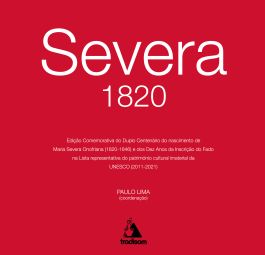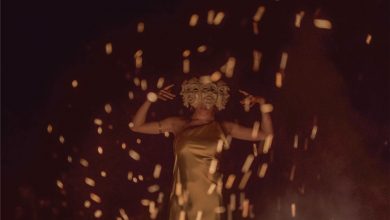‘SEVERA 1820’ the book
Edition commemorating the Double Centenary of the Birth of Maria Severa Onofriana (1820-1846) and the tenth anniversary of the inscription of Fado on the UNESCO Representative List of Intangible Cultural Heritage (2011-2021).
A reference work at the national level, which brings us a lot of new information about the history of Fado.
Coordination of Paulo Lima (anthropologist)
SEVERA 1820 (Hardcover book with 464 pages and 2 CDs).
Coordination of Paulo Lima (anthropologist)
Commemorative Edition of the Double Centenary of the Birth of Maria Severa Onofriana (1820-1846) and of the Ten Years of the Inscription of Fado on the UNESCO Representative List of Intangible Cultural Heritage (2011-2021).
A work of reference at the national level, which brings us a lot of new information about the history of fado.
Severa 1820 brings together more than a dozen contributions that focus on the three foundational moments of fado as a Lisbon song: the birth of Maria Severa Onofriana, in 1820; the rise to the stage of the play “A Severa”, by Júlio Dantas, in 1901; the inscription of Fado on the UNESCO Representative List of Intangible Cultural Heritage, in 2011.
Perhaps the most important historical event of all for fado is left out: the first sound recording of a voice “singing fado”, which took place in Porto, in 1900. However, in this work all the tracks from the first Portuguese sound film – A Severa – directed by Leitão de Barros and premiered on June 17, 1931, and another CD entitled “Outras Vozes” with interpretations by various singers/fadistas from 1906 to 1956.
We can say today that Maria was not born on July 26, 1820, but on the day of her debut, when spectators saw and heard Severa singing in the cinema. On that day, the actress Dina Tereza gave birth to the first fado singer in Lisbon for all of us.
Maria Severa Onofriana came into the world one month before the 1820 Revolution and two years before the 1st Portuguese Constitution. There, the rights of freedom of thought and equality were enshrined. We have ceased to be subjected to be citizens.
This book includes texts from:
- GRAÇA FONSECA, former Minister of Culture
- DIOGO MOURA, Councilor for Culture at the Lisbon City Council
- PAULO LIMA, anthropologist
- MARIA ALEXANDRA LOUSADA, Department of Geography/Center for Geographical Studies, University of Lisbon
- JOSÉ JOÃO MARQUES PAIS, Historian, Independent Researcher
- ANTÓNIO JANEIRO, researcher
- MARIA ALICE SAMARA, Researcher at the Institute of Contemporary History, Universidade Nova de Lisboa
- MANUEL DENIZ SILVA, INET-MD-Institute of Ethnomusicology, Faculty of Social and Human Sciences, Universidade Nova de Lisboa
Follow us on Facebook, Twitter, Instagram, Youtube, and TikTok and see the exclusive content for social networks.






